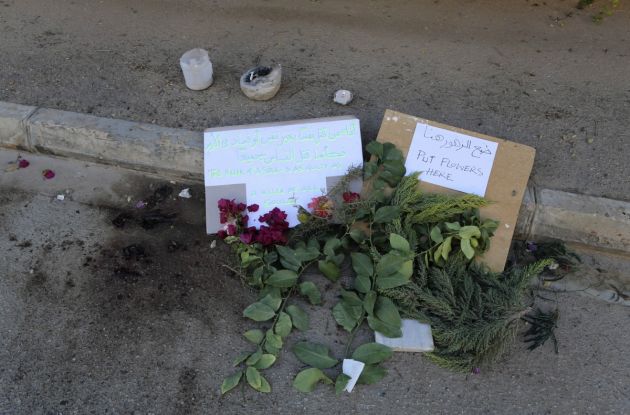US teacher killed in Libya remembered as force for change

(Reuters) - Ronnie Smith, the American teacher shot dead by gunmen in Libya, was remembered on Friday by his students and friends as an inspirational figure making a difference in the troubled North African country.
Smith was gunned down on Thursday as he was exercising in the Libyan city of Benghazi where he worked as a chemistry teacher for the last year and a half, security sources and school officials said. It was not immediately clear who was responsible for the attack.
"He was just always so helpful and caring. He was just all around perfect," Abubaker Tahar, 16, one of Smith's students at the International School Benghazi, told Reuters via Twitter. He was one of a number of students who took to social media to share their grief for a teacher they described as trying to push them to make Libya a better place.
Smith attended Woods-Tower High School in Warren, Michigan, and earned a master's degree in chemistry from the University of Texas in 2006. He was a devout Christian who was a member of the Austin Stone Community Church, which aims to have its followers do good works in the places where they live.
"It was not always sunshine and lollipops, but God's hand was always leading me and He brought me to where I am today," he had written on his page at the church's website.
One of his friends, Logan Gentry, told the Los Angeles Times in an email interview that Smith was aware of the heightened violence in Libya but he was not afraid.
"Part of me wonders, 'Why were you out running in that environment?' But he would probably say, 'Why not?' He enjoyed life and feared very little. It is what made him so great," he told the paper.
Smith had been planning to return to Texas for the Christmas holiday and was in Benghazi preparing his students for their midterm exams. His wife and child were in the United States at the time of the attack.
Libya's government is struggling to contain former fighters and militants who, two years after the fall of Muammar Gaddafi, are challenging a fragile state that is still building a national army with Western aid.
"It makes me feel so sad that he came to help Libyans and ended up murdered by them," Bushra Gleasa, 18 and a student at the school, told Reuters by Twitter. "He was not a foreigner to us. He was one of us," she said.
